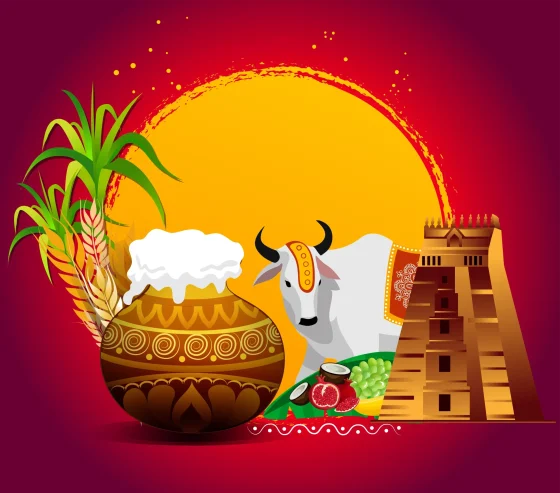Diving into the Essence of Pongal, the Festive Heart of South India
Pongal is a harvest festival that holds a special place in the hearts of those who celebrate it in South India. This festival is a vibrant and joyous occasion that honors the abundance of nature and the prosperity of the harvest season. It is a time to express gratitude for the blessings of the past year and to look forward to the promise of the year ahead.
With a rich history and a deep cultural significance, Pongal is a festival that is both timeless and relevant. From its ancient roots in the Hindu faith to its modern-day celebrations, this festival has evolved over time, yet it remains a beloved and important part of South Indian culture.
In this article, we will explore the many facets of Pongal, including its history, traditions, and modern-day celebrations. We will discover why this festival is so deeply cherished and how it continues to be a vibrant expression of love and respect for nature and the harvest.
History of Pongal
Traditions and Customs
As the sun rises on the day of Pongal, a sense of excitement and anticipation fills the air. At the heart of this festival is the preparation of a special dish, aptly named “Pongal,” that is made from the newly harvested rice, lentils, and jaggery. This delicacy is cooked outdoors in a clay pot, a tradition that symbolizes gratitude to Mother Nature and the life-giving energy of the Sun.
But Pongal is about more than just food. The festival is also a time to honor the animals that play a crucial role in agriculture, particularly cows and bulls. These animals are decorated with colorful garlands and painted horns, and they are paraded through the streets with pride and celebration.
Another integral part of Pongal is the creation of intricate kolam designs at the entrances of homes. These beautiful patterns, made from rice flour and other natural materials, are believed to bring good luck and prosperity to the household. They are also a way for families and communities to come together, sharing in the joy and creativity of the festival.
In every aspect of Pongal, there is a sense of gratitude, celebration, and connection to the natural world. It is a time to give thanks for the bounty of the harvest and to honor the traditions and customs that have been passed down through generations.
Cultural and Religious Significance
Pongal may be a cultural celebration, but it is also a festival with deep religious significance. The traditions and rituals associated with Pongal are closely tied to Hindu stories and deities, and the festival is seen as a time to give thanks and honor the divine forces that have blessed the harvest.
At the center of the festival is the worship of the Sun God, who is believed to bring life and energy to the crops, and the Earth Goddess, who nourishes and sustains the plants that grow from her soil. Farmers offer prayers and thanks to these deities, recognizing the vital role they play in the success of the harvest.
This spiritual connection to nature is a central theme of Pongal, and it serves as a reminder of the deep reverence and respect that many Hindu communities have for the natural world. Through the celebration of Pongal, people are able to express their gratitude for the bounty of the earth and to reaffirm their connection to the divine forces that sustain and nurture all life.
Modern Celebrations
Today, Pongal is celebrated with great enthusiasm not just in rural areas, but also in cities. It has transcended geographical boundaries, with the South Indian diaspora spreading its traditions worldwide. Modern celebrations include dance competitions, music, and even bull races.
Cuisine
Beyond the Pongal dish, the festival is known for its culinary delights. Traditional recipes are passed down through generations, each with its own regional variation. The dish can be sweet or savory, and many venture to prepare these recipes at home, keeping the culinary tradition alive.
be sweet or savory, and many venture to prepare these recipes at home, keeping the culinary tradition alive.
It teaches us about the importance of gratitude, respect for nature, and the value of traditions. By celebrating, we not only honor the roots of an ancient agricultural culture but also reaffirm our connection to the land and our communities. As the sun rises on another day of Pongal, we are reminded of life’s constant renewal and hope. Ultimately, is a celebration of life, a moment to pause, breathe, and give thanks. It’s an invitation for us all to explore, learn, and, above all, celebrate the incredible diversity of our world.
 be sweet or savory, and many venture to prepare these recipes at home, keeping the culinary tradition alive.
be sweet or savory, and many venture to prepare these recipes at home, keeping the culinary tradition alive.




